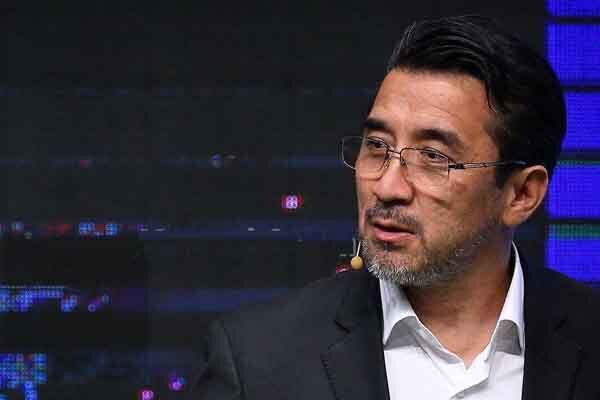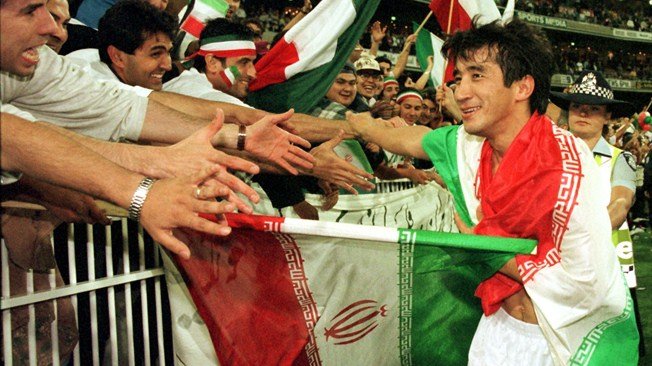Holding Australia at the MCG was a miracle: Khodadad Azizi

Tehran Times – TEHRAN, Nov. 29, 1997 is an unforgettable day in the history of Iranian football and is etched in every Iranian football fan’s memory.
On that day, millions of Iranian fans poured onto the streets of Tehran to celebrate securing a place at their first FIFA World Cup Finals in 20 years.
At the Melbourne Cricket Ground (MCG), Australia’s national team were held to a 2-2 draw by Iran. A result that broke Australians’ hearts, when goals from Karim Bagheri and Khodadad Azizi earned the Iranians a 3-3 aggregate tie and a ticket for the FIFA World Cup on the away goals rule.
The name of Khodadad Azizi became immortalized in Iranian football after scoring the goal that sent Iran to France 1998. He also had set up the first goal and scored a goal for Iran in the first leg a week earlier.
Twenty- three years later, Tehran Times approached Khodadad Azizi, now a 49-year-old veteran, to talk to him in an exclusive interview about that historic match and other Iranian football issues.

Tehran Times: “Then 26, Azizi was in the prime of his career,” it’s mentioned in a report by FIFA.com about the match. Do you agree that it was the prime of your career?
Azizi: It’s generally true. At the ages of 26,27, or 28, I was playing my best football. Having been named AFC Player of the year in 1996 and the second-best player of Asia in 1997 proves that those years were the prime of my career.
You were playing at Cologne in the German Bundesliga. Was it effective to develop your level of football?
Surely, playing in the Bundesliga had a big impact on the quality of my game. With Ali Daei and Karim Bagheri, we were among the first Iranian who played in Europa, and we found out how difficult modern football is.
Reviewing Australia and Iran’s historical match in Melbourne, do you really believe that it was a miracle for the Iranians?
Azizi: Realistically speaking, I have to say that we were not as strong as the Australian team at that game. Of course, we played very well in Tehran’s first leg, which ended 1-1. We created a lot of opportunities, and we could have scored more if we had done better in front of the goal. The low quality of the Azadi Stadium’s turf was one of the reasons we didn’t play as we expected. However, in the second match in Australia, they were much better than us, especially in the first half, and they deserved more goals. But, in my opinion, the real miracle was the 2-2 result because it was exactly the result that we needed. Winning the game was somehow impossible for us, so we needed a draw. If it was 1-1, we could not resist, and at the extra times, we would definitely lose. Before the game, anyone, who understood football, knew that we had a tough job ahead. My teammates in Germany talked to me about it. Most of the Australian players were playing in the best European leagues like England, Germany, Italy, Scotland, etc.
But at last Iran won the ticket for the 1998 FIFA World Cup.
Yes, and it is the reason that football has so many fans and viewers around the world. It’s always unpredictable, and nobody can be sure about the result. It happened to us, and fortunately, we enjoyed the final result.
Can we say the Iran team at that competition benefited from the best generation?
As a member of that team, I cannot talk about it and just say that we were the best. The four Iranian players have been named AFC Player of the Year so far and three of them were playing in that team, namely Ali Daei, Mehdi Mahdavikia, and me. Meanwhile, Karim Bagheri and Ahmadreza Abedzadeh were also among the best players in Asia. Keeping this in mind, you can judge for yourself which team had the best generation of players in Iranian football history.




